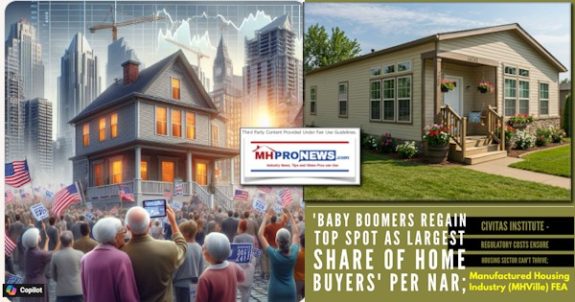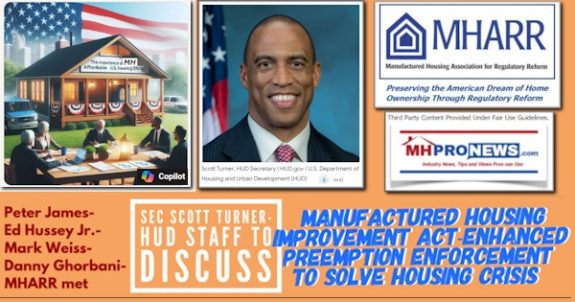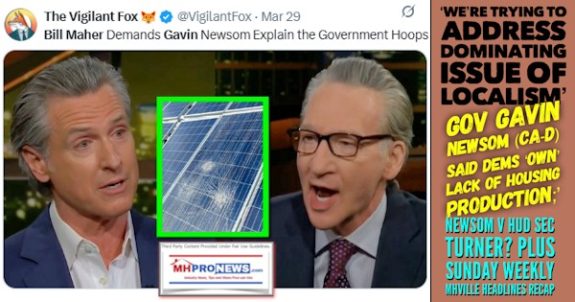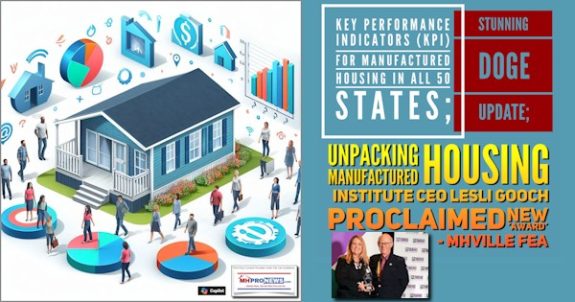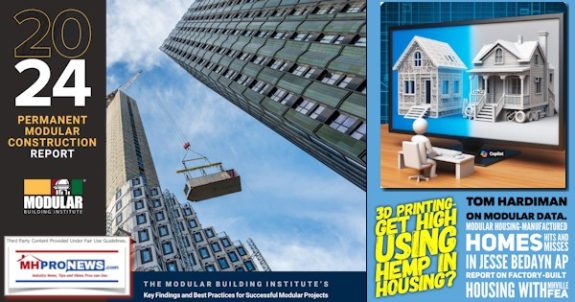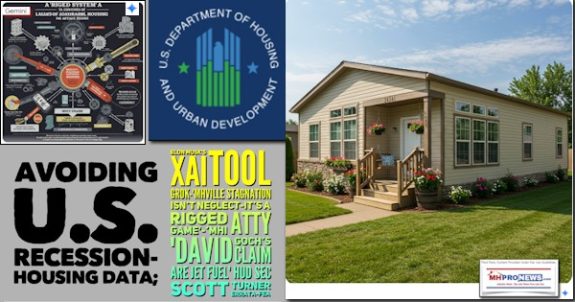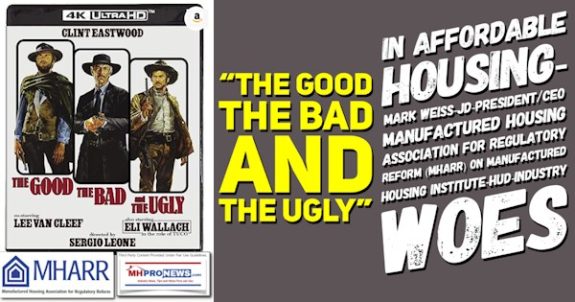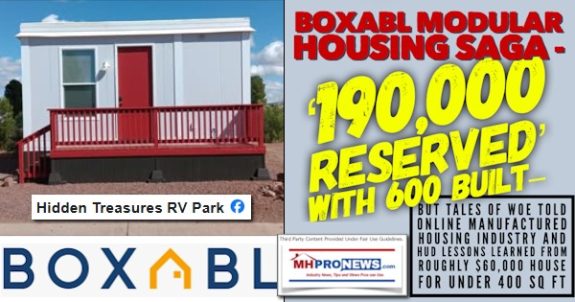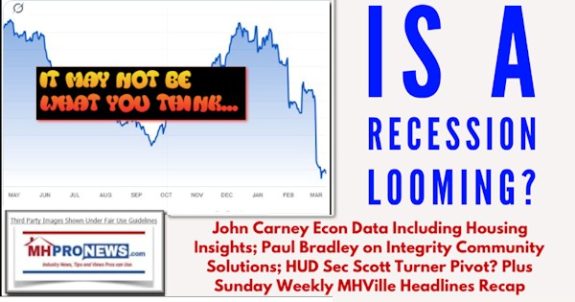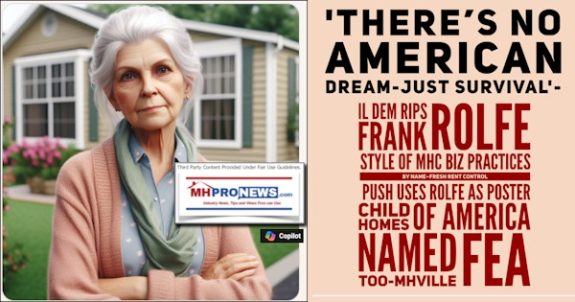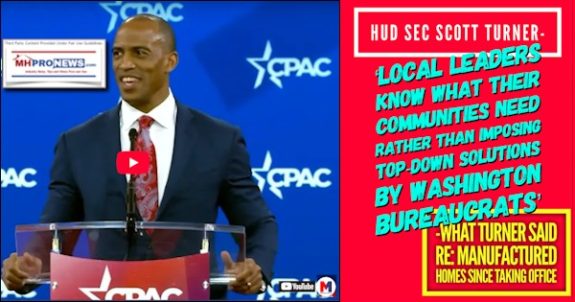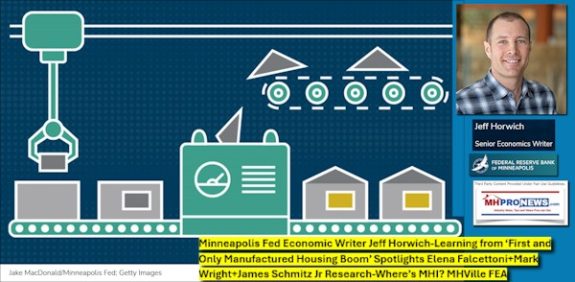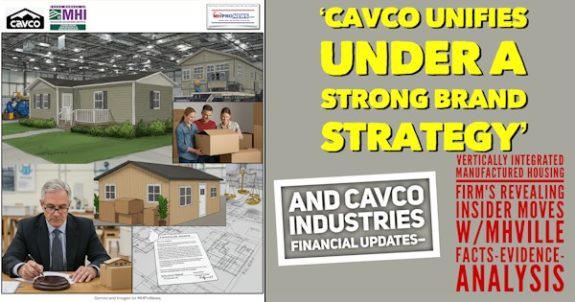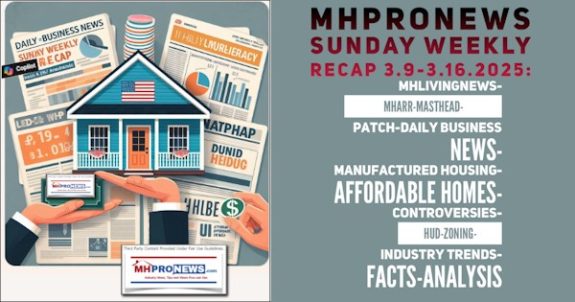Hodge Named MHI Vice President – National Communities Council
MHI President and CEO Richard Jennison announced yesterday that Jenny Hodge has been named MHI’s Vice President – National Communities Council. Hodge, formerly Vice President of Marketing for the American Integrity Insurance Group of Tampa, Fla., will be responsible for creating, implementing, and managing programs and services directly supporting MHI’s National Communities Council (NCC).
The NCC is the only national organization devoted to advancing the interests of manufactured home land-lease community owners, managers, developers, lenders, brokers and service/suppliers. She will assume her new post on Monday, September 17th.
“We are pleased that Jenny Hodge will be joining MHI and the NCC due to her extensive background and knowledge of the manufactured housing industry over the last decade and the industry knowledge she has gained during that period,” Jennison stated in making the announcement. “Her participation and involvement in many of the major industry initiatives over the past decade give her valuable insight into the manufactured housing industry which will benefit MHI and the NCC.”
Prior to joining American Integrity Insurance Group in January 2011, Hodge served in various marketing research and marketing development positions for American Modern Insurance Group of Cincinnati, Ohio. In those roles she was directly involved in working with the manufactured housing industry on a variety of insurance-related matters.
Hodge holds a B.S. in Finance (with a focus in real estate) from George Mason University in Fairfax, Va. She also holds the professional designations of Associate in Underwriting and Associate in Research and Planning from the Insurance Institute of America. Hodge is an active member of the Society of Insurance Research, having served on its Board of Directors from 1999-2006 and as President of the Society from 2004-2005.
“We are thrilled that Jenny is coming on board to spearhead the initiatives that have been envisioned by the NCC’s leadership,” added David B. Lentz, President and Chief Executive Officer of American Land Lease, Inc. and current NCC Chairman. “Her industry experience and deep understanding of the challenges and opportunities facing the sector should allow her to hit the ground running for maximum impact.”
CFPB Updates
Wave of CFPB Housing Financing Rules Facing Manufactured Housing Industry
Over the past several weeks, the Consumer Financial Protection Bureau (CFPB) has released a flurry of proposed rules and requests for comments that will have significant ramifications on the manufactured housing industry’s ability to provide financing to low- and moderate-income families for the purchase of affordable manufactured housing. While MHI will be submitting comments on behalf of the industry, all are encouraged to contact the CFPB on these important issues. Below are highlights of rules currently open for comment that MHI is monitoring.
HOEPA High-Cost Mortgage Regulations:
The Dodd-Frank Act amends the Truth in Lending Act by expanding the types of mortgage loans that are subject to the protections of the Home Ownership and Equity Protection Act (HOEPA) by revising and expanding the triggers for coverage under HOEPA and by imposing additional restrictions on HOEPA mortgage loans, including a pre-loan counseling requirement. Due to the fixed costs (such as servicing and origination) and lack of secondary market access, low-balance manufactured home loans are particularly susceptible to being classified as a high-cost mortgage. Because of the liabilities associated with a high-cost/HOEPA mortgage, lenders will simply not originate these loans—potentially further stifling the availability of credit in the manufactured housing market. To view the proposed rule, click here. The deadline to file comments is September 7th.
RESPA and TILA Integrated Mortgage Disclosure Requirements:
The Dodd-Frank Act directs the CFPB to issue proposed rules and forms that combine certain disclosures consumers receive in connection with applying for and closing on a mortgage loan under the Truth in Lending Act (TILA) and the Real Estate Settlement Procedures Act (RESPA). The rule provides an exemption to home-only loan transactions from using the new combined RESPA-TILA disclosure. However, home-only/personal property loan transactions will still be bound by pre-existing TILA disclosure requirements. In commentary accompanying the rule, the CFPB states:
“Chattel-dwelling loans (such as loans secured by mobile homes) do not involve real property, by definition. The Bureau estimates that approximately one-half of the closing-cost content of the integrated disclosures is not applicable to such transactions because they more closely resemble motor vehicle transactions than true mortgage transactions. Such transactions currently are not subject to RESPA and, unlike the transactions above that involve real property, generally are not consummated with ‘‘real estate settlements,’’ which are the basis of RESPA’s coverage. Thus, were these transactions subject to the integrated disclosures under this proposal, a significant portion of the disclosures’ content would be inapplicable. The Bureau believes that permitting those items to be omitted altogether could compromise the overall integrity of the disclosures, which were developed through consumer testing that never contemplated such extensive omissions, and the Bureau therefore has no basis for expecting that they would necessarily be as informative to consumers if so dramatically altered. The Bureau has similar concerns about keeping the overall forms intact but directing creditors to complete the inapplicable portions with ‘‘N/A’’ or simply to leave them blank. Moreover, the Bureau believes that such an approach would risk undermining consumers’ understanding of their transactions, which would be inconsistent with the purpose of this rulemaking, because they could be distracted by extensive blank or ‘‘N/A’’ disclosures from the relevant disclosures present on the form.
Although chattel-dwelling loans are subject to TILA, excluding them from coverage of the integrated disclosures would not excuse them from TILA’s disclosure requirements. Rather, they would remain subject to the existing closed-end TILA disclosure requirements as implemented in § 1026.18. Thus, this approach preserves the current treatment of chattel-dwelling loans under both RESPA and TILA. The Bureau expects that it will undertake improvements to the § 1026.18 disclosures in the future, through a process similar to the one used in this proposal. The Bureau believes that the TILA disclosures resulting from that process would be more appropriate and more beneficial to consumers than the integrated disclosures under this proposal. Excluding chattel-dwellings from the integrated disclosure requirements means they would not be subjected by this rulemaking to certain new disclosure requirements added to TILA section 128(a) by the Dodd-Frank Act. As discussed under § 1026.1(c) above, certain new mortgage disclosure requirements established by the Dodd-Frank Act are being deferred until such requirements are implemented by regulations. Such regulations include, but are not limited to, the final rule that will be adopted under this proposal. As noted above, the Bureau plans to address chattel-dwellings, as well as reverse mortgages and HELOCs, in future rulemakings. Accordingly, pursuant to the authority discussed above, those transactions also are subject to the temporary exemption in proposed § 1026.1(c) until those rulemakings are completed.”
To view the proposed rule, click here. Comments on the disclosure requirements are due November 6th.
TILA Mortgage Servicing Guidelines:
The rules implement Dodd-Frank provisions regarding mortgage loan servicing. Specifically, this proposal implements Dodd-Frank sections addressing initial rate adjustment notices for adjustable-rate mortgages (ARMs), periodic statements for residential mortgage loans, and prompt crediting of mortgage payments and response to requests for payoff amounts. The proposed rule would provide an exemption to small servicers—defined as those that service 1,000 or fewer mortgage loans and service only mortgage loans that they originated or own—for the periodic statement requirements. To view the proposed rule, click here. Comments are due October 9th.
RESPA Servicing Guidelines:
These implement the Dodd-Frank provisions regarding mortgage loan servicing and addresses servicer obligations. Similar to the TILA servicing guidelines, the proposed rule would provide an exemption to small servicers—defined as those that service 1,000 or fewer mortgage loans and service only mortgage loans that they originated or own—for the periodic statement requirements. To view the proposed rule, click here.Comments are due October 9th.
Appraisal Requirements for Higher-Risk Mortgages:
These implement Dodd-Frank requirements requiring an appraisal for “higher-risk mortgages.” Dodd-Frank exempts qualified mortgages from the higher-risk mortgage definition. In addition, the rule proposes to exclude any loan “solely secured by a residential structure,” such as manufactured homes. MHI has developed additional information on the proposal and can be viewed by
clicking here. Comments on the rule are due October 15th.
Equal Credit Opportunity Act Regulations:
These implement revisions outlined in Dodd-Frank that would require creditors to provide free copies of all written appraisals and valuations developed in connection with an application for a loan to be secured by a first lien on a dwelling. The proposal also would require creditors to notify applicants in writing of the right to receive a copy of each written appraisal or valuation at no additional cost. With respect to new manufactured homes, most lenders develop a maximum loan amount based on the manufactured home’s invoice price. In the proposed rule, the CFPB indicates that “valuations such as manufacturer’s invoices for mobile homes”would not be considered a “written appraisal or valuation” and, as such, something that must be provided to the consumer by the lender because it was used in connection with a loan decision. To view the proposed rule, click here. Comments are due October 15th.
Loan Originator Compensation Regulations:
These implement changes made by Dodd-Frank to Regulation Z’s current loan originator compensation provisions, including a new additional restriction on the imposition of any upfront discount points, origination points, or fees to consumers under certain circumstances. The rule implements a very narrow exemption for manufactured housing retailers to “exclude employees of a manufactured home retailer who assist a consumer in obtaining or applying to obtain consumer credit, provided such employees do not take a consumer credit application, offer or negotiate terms of a consumer credit transaction, or advise a consumer on credit terms (including rates, fees, and other costs).” Unfortunately, the provision provides no meaningful relief to the industry.
MHI has maintained the position that the exemption for manufactured home retailers should be based upon the compensation received in the home sale. If the compensation received is no greater than what the retailer would have received in an all cash transaction, then they should be exempted.
A lender has no realistic way of determining which of the activities a retailer may or may not have performed. As such, the lender may be forced to consider a retailer’s sales commission in points and fees calculations, which could then cause the loan to fail the test for a “qualified mortgage” or a HOEPA/high-cost mortgage.
Click here to view the rule. Comments are due October 16th.
HUD Issues a Waiver on FHA Flood Plain Requirements for Manufactured Home Loans
Responding to an MHI request earlier this year, on July 24, 2012 HUD issued a one-year waiver to its requirements for manufactured homes insured by FHA’s Title II insured loan program located in areas designated by the Federal Emergency Management Agency (FEMA) as flood hazard areas. Since November 15, 2011, lenders have been unable to insure loans in flood hazard areas unless the finished grade level beneath the manufactured home is at or above the 100 year return frequency flood elevation. This has created undue burdens on homebuyers because it has required substantial amounts of fill dirt to be hauled to the site and the home to be unnecessarily elevated. All other single family homes insured under the FHA program require the elevation of the lowest floor of the home to be at or above the base flood elevation. The July 24th waiver, effective until July 24, 2013, will allow FHA Title II insured manufactured homes to meet the same flood elevation requirements as other single family homes.
The July 24th waiver was a welcome surprise, as HUD stated last year that it would not extend another waiver, which had been extended annually since 2006. In a recent letter to MHI, HUD said it is still considering the merits of amending the regulations permanently, and if HUD does decide to do so, it will consider expedited rulemaking as this change was included in a proposed rule issued in 2008 and later withdrawn.
Click here Click here to view the FHA waiver letter.
Government Accounting Office Issues Report on the Use of Home Energy Assistance for Occupants of Manufactured Housing
During the 111th Congress, legislation was introduced and supported by MHI to provide grants and rebates which may be used to facilitate the purchase of new Energy Star qualified homes to replace pre-1976 homes as well as decommissioning grants of up to $2500 to cover costs of removing the older home. A GAO report issued on August 24th confirms what MHI and others suspected, that it may be more cost effective to assist eligible home owners in the purchase of a new home.
Congress asked for the study in order to determine whether federal assistance under the Low Income Home Energy Assistance Program (LIHEAP) should be used to retrofit these older manufactured homes or if replacing them with new, more energy-efficient homes would save the federal government money. The LIHEAP program helps cover home energy expenditures, including home retrofits, for lower income families to pay their home energy costs.
Click here to view a copy of the report.
RV/MH Hall of Fame News
MHI Certified Representative Doug Gorman Inducted into RV/MH Hall of Fame
On Monday, August 6th, Doug Gorman was inducted into the RV/MH Hall of Fame during its 40th Anniversary induction dinner. Doug Gorman is the certified representative to MHI from the Oklahoma Manufactured Housing Association and President of Home-Mart, Inc. located in Tulsa, Oklahoma. Gorman established Home-Mart, Inc. in 1988 and is actively involved the Oklahoma Manufactured Housing Association and MHI. He is co-chairman of the Great Southwest Home Show in Tulsa, and served many years on the Manufactured Housing Consensus Committee which has the responsibility of drafting, reviewing and making recommendations for changes to the HUD construction standards and regulatory programs for the industry.
MHI Members Selected for RV/MH Hall of Fame Leadership Roles
Barry Cole, president of Manufactured Housing Insurance Services, Orange, California, has been elected chairman of the RV/MH Hall of Fame board of directors. Mr. Cole will lead the Hall for the next two years. New board members elected included MHI Chairman Joe Stegmayer, Chairman and CEO of Cavco Industries, Inc. Other MHI members serving current terms on the board of directors are Ross Kinzler, Wisconsin Housing Alliance; Darrell Boyd, Triad Financial Services; Chris Barrett, Bennett Transport; and Leo Poggione, Craftsman Homes, Inc.
Northern Indiana Event Center
The RV/MH Heritage Foundation is now doing business as the Northern Indiana Event Center, as well as the RV/MH Hall of Fame, according to Darryl Searer, the Foundation’s president. The Foundation will be naming the south entrance of its complex as the Northern Indiana Event Center. Searer also announced that the Foundation has hired Stacey Walworth as Event Sales/Marketing Manager for the Event Center. Her primary role will be to identify potential customers for the Northern Indiana Event Center and to solicit their business.
Searer said, “We are delighted that Stacey is joining our staff. Her experience in event sales/marketing and planning is a perfect fit to augment our existing staff. With the reduction of available event space in the ‘Michiana’ area, our opportunity for new business has dramatically increased.” The Event Center is versatile and can accommodate groups as small as 10 or 15 attendees in private rooms to as many as 2,100 in theater-style seating or a sit-down banquet for up to 1,000 in Ingram Hall.







